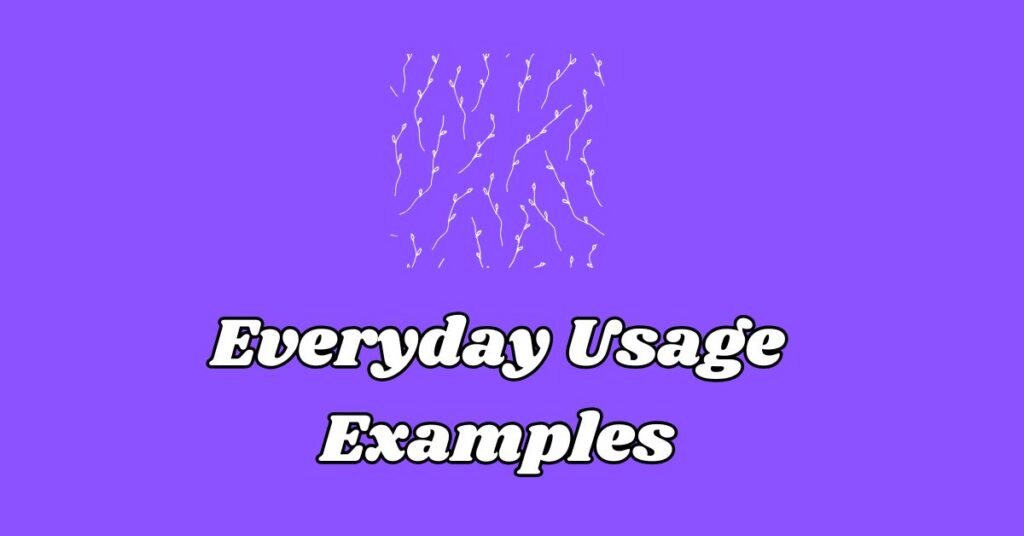Meander vs Maunder are two words that often confuse English speakers due to their similar sound and spelling. However, their meanings diverge significantly, making it essential to understand their proper usage. Meander refers to a winding or circuitous path, whether physical, like a river’s twists, or figurative, such as a wandering thought process.
On the other hand, maunder describes rambling speech or incoherent conversation, often marked by aimlessness or lack of clarity. These distinctions are vital for effective communication and avoiding common text, speech, and writing errors.
Whether you’re describing a winding journey or an aimless lecture, mastering these terms will elevate your language precision and style effortlessly.
Quick Summary
The confusion between meander and maunder often arises from their similar spellings but distinct meanings. Meander typically refers to moving or flowing in a winding course, often without a clear direction, while maunder involves talking or moving in a rambling, aimless manner.
Understanding these differences is crucial for effective text classification and part-of-speech identification in text generation and speech.
Difference Between Meander or Maunder

The primary distinction between meander and maunder lies in their application. Meander is often used to describe a winding path or a circuitous route, such as a river meander that twists and turns through the landscape.
On the other hand, maunder focuses on rambling speech or aimless conversation, where someone talks in a long-winded or incoherent manner. For instance, you might say, “The professor began to maunder about irrelevant topics,” or “The hikers decided to meander through the woods.”
Origins of the Word Maunder
The verb maunder, first recorded in 1746, means “to wander about aimlessly” and earlier referred to “mumble or grumble” in the 1620s. Its origins may trace back to maund, meaning “to beg” (1560s), possibly derived from the French mendier or Latin mendicare, both meaning “to beg.”
While maunder and meander are not etymologically related, they appear to have influenced each other. Fowler suggests maunder is best used for speech, implying futility over digression
Maunder: Definition and Usage
Maunder is a verb that means to speak or move in a rambling, aimless manner. It often conveys a sense of absent-mindedness or wandering thoughts, making it ideal for describing incoherent speech or unstructured conversation.
For example, someone might maunder during a lecture, drifting off-topic without a clear focus. Historically, maunder originated from the 17th century and was associated with begging or wandering, evolving to describe aimless behavior in both speech and movement.
Maunder Definition
The term maunder refers to speaking or moving in a rambling, aimless manner. It is often used to describe incoherent or disorganized speech, where the speaker prattles or babbles without a clear point.
Historically, maunder also meant “to beg,” originating from the obsolete verb maund. While it shares similarities with meander, the two words are not etymologically related. Today, maundering primarily captures moments of absent-minded speech or dreamy wandering.
Maunder Pronunciation
Pronounced as [MAWN-dər], the word maunder has a soft emphasis on its first syllable. The pronunciation remains consistent across different English dialects, ensuring clarity in both written and spoken communication.
Whether describing someone who maunders through a conversation or moves idly, understanding its pronunciation is key to using the word effectively in everyday language.
Maunder Usage
The usage of maunder is versatile, capturing moments of rambling talk, wandering thoughts, or even long-winded speech. It can describe someone lost in thought or indulging in pointless chatter, such as “He began to maunder about his childhood memories.”
Writers often use it to depict absent-minded characters or incoherent discussions, adding depth to their narratives. Whether applied to aimless writing or disjointed conversation, maunder brings precision and nuance to language.
Uses of Maunder in a Sentence
- The professor’s tendency to maunder made the lecture feel endless.
- After a few drinks, he began to maunder about his childhood.
- The politician’s speech was criticized for maundering on irrelevant issues.
- She maundered through the presentation, confusing her audience.
- His maundering style of speaking often led to misunderstandings.
Synonyms of Maunder
- Ramble – To talk or move aimlessly without focus.
- Babble – To speak quickly and incoherently.
- Prattle – To chatter meaninglessly or at length.
- Blather – To talk foolishly or nonsensically.
- Mutter – To speak in a low, unclear manner.
- Jabber – To talk rapidly and unintelligibly.
- Drift – To move or act without purpose or direction.
- Waffle – To speak or write without saying much of substance (informal).
- Chatter – To talk quickly about trivial matters.
- Rattle on – To continue speaking for a long time, often aimlessly.
Meander: Definition and Usage
Meander describes a winding or circuitous path, whether physical or figurative. It can refer to a river meander that twists through the landscape or a meandering conversation that wanders from topic to topic. In usage, meander captures the idea of moving or flowing without a direct course, often in a leisurely or aimless manner.
This word is ideal for describing scenic routes, winding journeys, or even meandering thoughts that unfold gradually. It adds a sense of serenity and natural flow to narratives.
Meander Definition
Meander refers to a winding or convoluted path, often seen in rivers or streams that curve and twist across landscapes. It can also describe aimless wandering, whether physical or figurative, such as drifting through topics in a conversation. The term originates from the ancient Maeander River in Asia Minor, known for its intricate bends.
In modern usage, meander captures the idea of leisurely movement without urgency or direct purpose.
Uses of Meander in a Sentence
- The river meanders gently through the countryside.
- The hikers decided to meander through the forest instead of following the map.
- The conversation meandered from one topic to another.
- She liked to meander along the beach, enjoying the sunset.
- The road meanders up the mountain, offering breathtaking views.
Side-by-Side Comparison
| Feature | Maunder | Meander |
| Meaning | Rambling speech or movement | Winding path or movement |
| Pronunciation | [MAWN-dər] | [MEE-ndər] |
| Usage | Describes incoherent speech | Describes a winding course |
Everyday Usage Examples

Meander and maunder are used to describe different scenarios. For instance, you might say someone is meandering through a park, enjoying the scenery, or maundering in a conversation, speaking aimlessly.
These words help convey nuanced ideas about movement and speech, adding depth to our descriptions of both physical journeys and verbal interactions. They are essential for precise communication in both speech and text.
Maunder Example
Maunder might be used to describe a situation where someone is talking excessively without making sense. For instance, during a meeting, a colleague might start maundering about unrelated topics, causing the discussion to lose focus.
5 Examples of Maunder in Context
- The guest speaker began to maunder about his personal life, confusing the audience.
- After a few glasses of wine, he started to maunder about politics.
- The teacher’s maundering style made the lesson feel disjointed.
- She maundered through the interview, failing to answer the questions.
- His tendency to maunder often led to misunderstandings in team meetings.
Meander Example
Meander is often used to describe a winding journey or a circuitous route. For example, a traveler might choose to meander through a new city, exploring its hidden gems without a fixed itinerary.
Examples of Meander in Context
- The tourists decided to meander through the historic district, admiring the architecture.
- The river meanders lazily through the valley, creating a serene landscape.
- She liked to meander along the coast, discovering secluded beaches.
- The hikers chose to meander off the main trail, finding a hidden waterfall.
- The road meanders up the hill, offering panoramic views of the city.
Common Mistakes
One of the most common mistakes is using meander when describing rambling speech, and vice versa. This confusion can lead to incoherent conversation or aimless writing.
Tips to Avoid the Mistakes
- Practice Active Listening: Pay attention to how others use these words in context.
- Read Widely: Expose yourself to different writing styles and genres.
- Use Mnemonics: Create memory aids to help distinguish between the two words.
- Focus on Context: Consider the situation and intended meaning when choosing a word.
- Seek Feedback: Ask others to review your writing or speech for clarity.
Tips to Remember the Differences
- Associate with Scenarios: Link each word to a personal experience or scenario.
- Use Flashcards: Create flashcards with definitions and examples.
- Engage in Conversations: Discuss these words with others to reinforce understanding.
- Play Word Games: Use puzzles or quizzes to test your knowledge.
- Reflect on Usage: Regularly review how you use these words in your daily life.
More Article: Distruction or Destruction: What’s the Difference
FAQ’s
Is it Meander vs Maunder?
Yes, Meander vs Maunder highlights two distinct words often confused due to their similar sounds. Meander refers to a winding or aimless path, while maunder describes rambling, incoherent speech or writing.
Is Meander Grammatically Correct?
Yes, meander is grammatically correct when used as a verb to describe wandering aimlessly or as a noun to refer to a winding path, such as a river’s course.
What is the Meaning of Maunder?
Maunder means to speak or move aimlessly in a rambling or incoherent manner. It can also imply grumbling or wandering idly.
Conclusion
Meander vs Maunder: Understanding their distinctions can elevate your communication skills. Meander refers to a winding path or leisurely wandering, often describing physical movement or thought processes that flow without urgency.
In contrast, maunder captures the essence of rambling speech or aimless conversation, often marked by incoherence. By mastering these terms, you can avoid common mistakes and use them effectively in both speech and text, enhancing clarity and precision in your language.
Related Post: Aid vs Aide: Master These Confusing Words in Minutes

